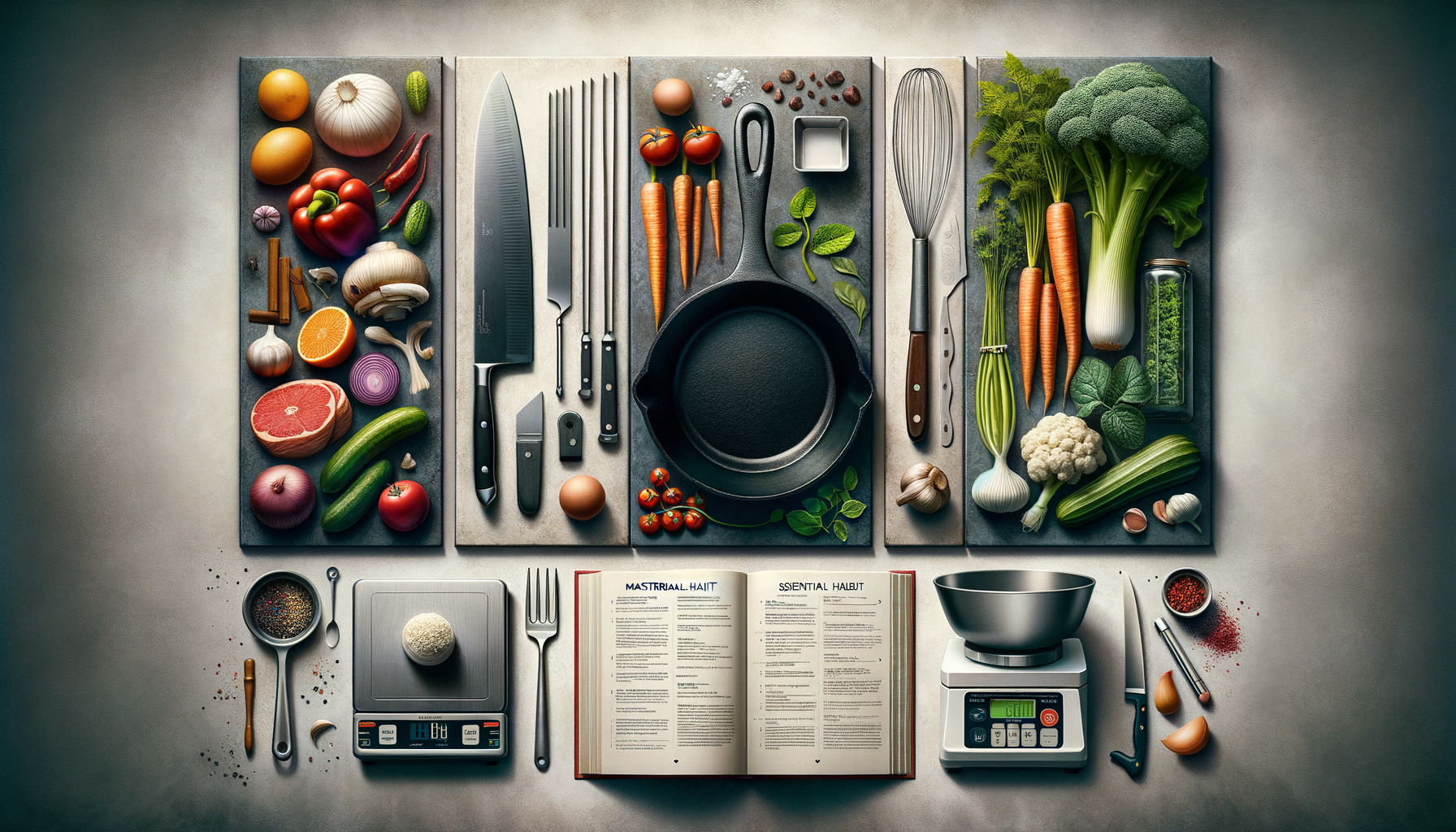
Why Culinary Students Master These 5 Habits First
Introduction: The Importance of Foundational Cooking Habits
In the world of culinary arts, mastering the basics is crucial for any aspiring chef. These foundational habits not only enhance cooking skills but also ensure efficiency and consistency in the kitchen. Culinary students are often taught to focus on these essential practices to build a strong foundation for their future careers. This article explores five key habits that culinary students prioritize, providing valuable insights for anyone looking to improve their cooking prowess.
Mise en Place: The Art of Preparation
Mise en place, a French term meaning „everything in its place,“ is a fundamental concept in professional kitchens. It involves organizing and arranging ingredients and tools before cooking begins. This practice is vital as it streamlines the cooking process, reduces stress, and minimizes the risk of errors. Culinary students learn to meticulously prepare their workstations, ensuring that they have all the necessary ingredients measured and ready. This habit not only saves time but also enhances focus, allowing chefs to concentrate on cooking rather than searching for ingredients mid-process.
Adopting mise en place involves several steps:
- Reading the recipe thoroughly and understanding the steps involved.
- Gathering all ingredients and tools required for the dish.
- Measuring and prepping ingredients, such as chopping vegetables or marinating proteins.
- Arranging items in an organized manner for easy access.
By mastering mise en place, culinary students develop a sense of discipline and efficiency that is crucial in professional kitchens, where time is of the essence.
Knife Skills: Precision and Safety
Knife skills are another cornerstone of culinary education. Proper knife techniques ensure not only precision in cutting but also safety in the kitchen. Culinary students spend significant time honing their knife skills, learning how to slice, dice, and chop with accuracy and speed. These skills are essential for preparing ingredients uniformly, which affects the cooking time and presentation of dishes.
Key aspects of mastering knife skills include:
- Choosing the right knife for the task, such as a chef’s knife for general use or a paring knife for intricate work.
- Maintaining sharp knives to ensure clean cuts and reduce the risk of accidents.
- Practicing various cutting techniques, such as julienne, chiffonade, and brunoise.
- Learning to hold and maneuver the knife safely to prevent injuries.
By developing excellent knife skills, culinary students enhance their efficiency and confidence in the kitchen, allowing them to tackle a wide range of recipes with ease.
Tasting and Seasoning: Developing a Palate
One of the most critical aspects of cooking is the ability to taste and season food effectively. Culinary students are trained to develop their palates, enabling them to identify flavors and balance them harmoniously in a dish. This skill is essential for creating dishes that are not only flavorful but also well-balanced.
To refine their tasting and seasoning abilities, culinary students focus on:
- Tasting dishes at various stages of cooking to adjust flavors as needed.
- Understanding the role of different seasonings and how they complement each other.
- Experimenting with spices and herbs to create unique flavor profiles.
- Learning to identify when a dish needs more salt, acid, or sweetness for balance.
By mastering the art of tasting and seasoning, culinary students can elevate their dishes, ensuring that each bite is a delightful experience for the diners.
Time Management: Balancing Multiple Tasks
In a bustling kitchen, time management is crucial. Culinary students learn to juggle multiple tasks simultaneously, ensuring that each component of a dish is prepared and cooked to perfection. This skill is vital for maintaining efficiency and meeting the demands of a busy kitchen environment.
Effective time management involves:
- Planning the cooking process to ensure that all elements of a dish are ready at the same time.
- Prioritizing tasks based on their cooking time and complexity.
- Utilizing downtime effectively, such as prepping ingredients while waiting for water to boil.
- Adapting to unexpected challenges without compromising the quality of the dish.
By mastering time management, culinary students can handle the pressures of a professional kitchen, delivering dishes promptly without sacrificing quality.
Conclusion: Building a Strong Culinary Foundation
Developing these five habits is essential for culinary students as they lay the groundwork for a successful career in the culinary arts. By focusing on preparation, precision, flavor, and time management, aspiring chefs can enhance their skills and confidence in the kitchen. Whether you’re a culinary student or a home cook looking to improve your abilities, adopting these practices can lead to more efficient, enjoyable, and successful cooking experiences.